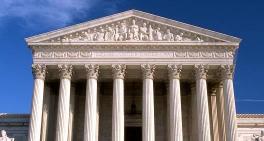Court deals major financial blow to nation's public employee unions
Employment Law
A deeply divided Supreme Court dealt a major blow to the nation's public employee unions Wednesday that likely will result in a loss of money, members and political muscle.
After three efforts in 2012, 2014 and 2016 fell short, the court's conservative majority ruled 5-4 that unions cannot collect fees from non-members to help defray the costs of collective bargaining. Justice Samuel Alito wrote the decision, announced on the final day of the court's term, with dissents from Justices Elena Kagan and Sonia Sotomayor.
About 5 million workers could be affected by the decision overruling the court's 1977 decision in Abood v. Detroit Board of Education — those who pay dues or "fair-share" fees to unions in 22 states where public employees can be forced to contribute. Workers in 28 states already cannot be forced to join or pay unions.
"We recognize that the loss of payments from nonmembers may cause unions to experience unpleasant transition costs in the short term and may require unions to make adjustments in order to attract and retain members," Alito wrote. "But we must weigh these disadvantages against the considerable windfall that unions have received under Abood for the past 41 years."
From the bench, he noted that Illinois, whose Republican governor initiated the challenge, "has serious financial problems" that are exacerbated by costly union contracts. Gov. Bruce Rauner has sought to renegotiate public employee contracts.
Kagan's main dissent for the four liberal justices accused the court of "weaponizing the First Amendment in a way that unleashes judges, now and in the future, to intervene in economic and regulatory policy."
"It wanted to pick the winning side in what should be -- and until now has been -- an energetic policy debate," she wrote. "Today, that healthy -- that democratic -- debate ends. The majority has adjudged who should prevail."
Justice Neil Gorsuch cast the deciding vote against what conservative opponents have labeled a form of compelled speech. The money helps labor unions maintain political power in some of the nation's most populous states, including California, New York, Illinois, Pennsylvania and New Jersey.
Related listings
-
Supreme Court takes up challenge by crisis pregnancy centers
Employment Law 03/20/2018The Supreme Court is hearing arguments in a free speech fight over California's attempt to regulate anti-abortion crisis pregnancy centers.The case being argued Tuesday involves information required by a state law that the centers must provide client...
-
Court: Ex-West Virginia judge ineligible for benefits
Employment Law 02/10/2018The West Virginia Supreme Court has ruled a former judge serving a corruption sentence and his ex-wife are not eligible for public retirement benefits.The Charleston Gazette-Mail reports the court Friday affirmed a 2017 ruling from Kanawha County cir...
-
Indiana Supreme Court considers eavesdropping case
Employment Law 12/18/2017The Indiana Supreme Court has taken up an eavesdropping case that could result in a new state standard to determine when prosecutorial misconduct is so egregious that a criminal suspect can no longer be made to stand trial.The court heard arguments l...




